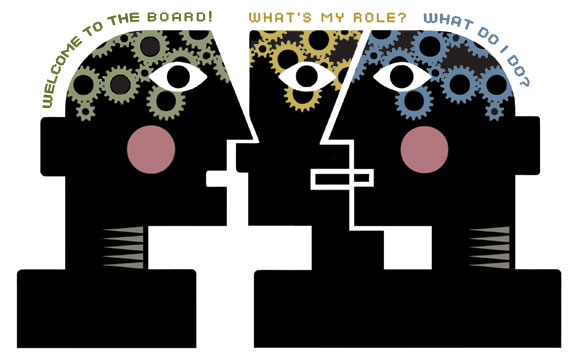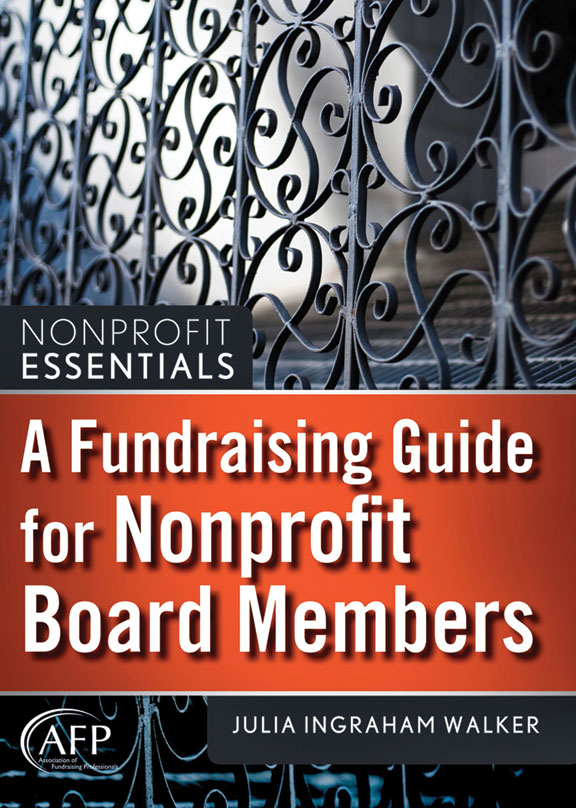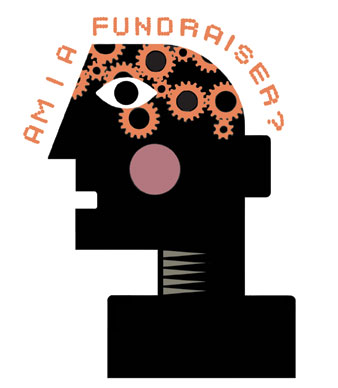
For some people, fundraising sounds either tiring or terrifying. But what if you are on a seminary board — does that mean you need to ask your friends for money? And what if you don’t have a clue how to raise funds? What if you are extraordinarily busy?
A new resource presented by the Association of Fundraising Professionals, A Fundraising Guide for Nonprofit Board Members, answers these questions. We asked an experienced advancement professional to read it, together with one of her board members, and to discuss its usefulness with us.
Elizabeth L. Visconage is vice president for institutional advancement and human resources at St. Mary’s Seminary & University in Baltimore. Joseph Molyneaux is a retired IBM marketing executive who volunteers for several nonprofits. He has been a member of St. Mary’s board since 2003.
 |
| A Fundraising Guide for Nonprofit Board Members by Julia I. Walker (Wiley, 2012, 312 pp., $50). |
Q This book suggests something that would be a shift for some seminary boards — equipping and expecting all members to be active fundraisers. Is that realistic?
A Visconage: There are definitely some seminaries where there is a culture of commitment to fundraising among the board. At others, there is a sense that the advancement committee will tell the board what is going on with fundraising.
For us, we fall in the middle. We have a board that is part clergy, part lay. That’s not at all unusual for seminary boards. Typically, the clergy are not called to do fundraising — that’s not why they are on the board. We have been fortunate to have some clergy board members willing to lead in fundraising, but there is always a need to try to broaden that thinking.
Q Molyneaux: I think there is a place for clergy in fundraising — like who they can connect you with. Or when you are closing a gift — if you can manage it, have a clergy person there, because it adds something intangible that is hard to define. Even though our culture is very secular, people still have a lot of respect for religious leaders.
A Visconage: What really struck me is the author’s description of the role of board members in getting major gifts. That is a key section. Board members are integral to major gift projects. As a board member, you’re not going to be asked if you can get a $10 gift for an upcoming event. You will be asked for help with major gifts — who do you know? How would you be willing to connect key people to the institution? It’s incumbent upon the seminary administration to make that clear. The last thing you want is someone to join your board and consider it a conflict to call a donor prospect.
Q This new Fundraising Guide for Nonprofit Board Members talks about the importance of diversity on seminary boards.
A Visconage: I do think that today, every organization has got to have a diverse board. There’s cultural diversity as well as ethnic, racial, and gender diversity — we prioritize all these. The idea that it’s only white men sitting around the table — in this day and age, that doesn't work.
Q Bottom line, what’s the big takeaway from this book for a seminary board member?
A Molyneaux: For a new board member — that they begin to see that in fundraising there is a lot of work to be done. And that this is going to require a considerable amount of their time and effort.
Building a team — a good relationship with the people on the board and on the development committee — is a first and necessary step. But it will also take some vision. It’s not just new ideas, but a vision for where you hope to take the organization and the fundraising effort.
Finally, one of the good reminders it offers is the importance of enthusiasm when board members approach people for donations. If you work for an organization for some time, you know the weaknesses and the strengths, and when out in public you want to be speaking of the strengths.
A Visconage: It could really be beneficial for a new board member who is inexperienced with seminary development. You could say, “We want you to be involved in fundraising; would you mind reading through this? I think it might help you understand more what we are trying to accomplish.” On the other hand, if a board member were already proficient at fundraising, this book would be too rudimentary. Several parts of the book struck me as more helpful for younger advancement professionals than for board members.
A Molyneaux: There are many examples of practical help in this book. For example, there is a chart, a sample gift table that shows a list of potential givers and different ranges. It starts at $1 million and goes all the way down. That gift table is wonderful. It communicates in one fast look what it’s all about. It would be invaluable in educating the rest of the board.
Q Would you recommend this book to fellow seminary boards?
A Visconage: It’s certainly a fine book. I would use it for inexperienced board members as a way to give them a bottom-line understanding. The hidden value of the book is really for young advancement professionals. It would be very, very helpful for them. 
A Molyneaux: I couldn't agree more. The advantage of the book for novice staff is that it brings them a sense of organization. It shows them how to organize things, and to recruit board members when it’s required. It would be enormously helpful to institutions that have just one or two people in development and very little staff support. A lot of the necessary steps are right here, already done for you.
The whole book speaks of the integrity of the process and keeping it to the highest standard.
A Visconage: The book also makes the point that it’s important for board members to know what is happening with the money they are raising. And it’s incumbent on staff to provide that information — that is critically important. Our board members never go out and ask anyone to make a commitment until the board member is completely fluent in how the money is going to be used.